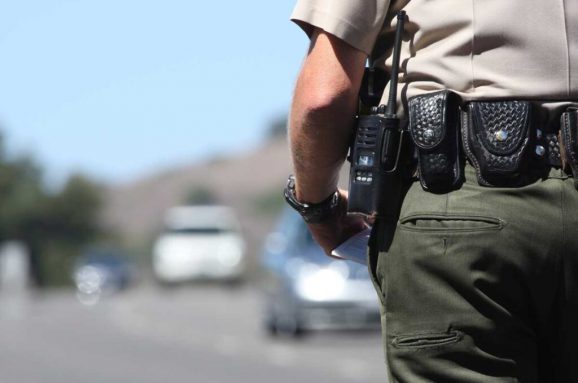This year’s International Roadcheck will focus on Lighting and Hours of Service for all commercial vehicles and their drivers.
The Commercial Vehicle Safety Alliance (CVSA) has set May 4-6, 2021 as the dates for this year’s International Roadcheck. The three day event covers Canada, Mexico and the United States. CVSA certified inspectors will conduct inspections on commercial vehicles along with drivers.
This annual event is the largest targeted enforcement program on commercial vehicles in the world. For example, an average of 15 trucks or buses are inspected every minute across North America. In addition, there have been 1.4 million roadside inspections conducted since the event started in 1988. This event does not focus only on violations. Similarly, there is a huge opportunity to educate industry leaders and the public about the importance of commercial vehicle safety.
Inspection Focus
CVSA certified inspectors focus their inspections on the North American Standard Level I Inspection. This 37-step procedure includes two main categories: driver operating requirements and vehicle mechanical fitness. For example, this year, the annual three-day event will focus on lighting violations and hours of service for commercial motor vehicles.
Inspectors will also check for critical violations outlined in the North American Standard Out-of-Service Criteria. If violations are found, the commercial vehicle will be placed out-of-service and be prohibited from operating until the violations have been corrected.
Vehicles that pass inspection without any violations will receive a CVSA decal. Therefore, commercial vehicles that carry the decal are not subjected to re-inspection during a three-month period while the decal is valid. Inspections will be re-focused to vehicles without a valid CVSA decal.
What Are Inspectors Looking For?
Inspectors check the vehicle’s brakes, cargo detainment systems, coupling devices, driveshaft components, driver’s seat, exhaust, frame, fuel systems, lighting, steering, suspension, tires, trailer bodies, wheels, and windshield wipers. Motor coaches and passenger carrying vehicles will also receive inspections to the battery compartments, emergency exits, electrical cables and seating.
Similarly, inspectors check the driver’s operating credentials, hours-of-service documentation, use of safety belts and for signs of alcohol and/or drug impairment. Drivers can be placed out-of-service if violations are found.
HOURS OF SERVICE
Drivers are subject to rules that limit the number of hours spent driving. Therefore, there are regulations for breaks and rest between shifts. Canada, Mexico and the U.S. have strict regulations when it comes to hours-of-service to prevent driver fatigue.
For example, Drivers must take a 30-minute break after they have driven for 8 cumulative hours without a 30 minute interruption. Inspectors will check drivers logs for hours worked and accuracy of those driver logs.
According to CVSA the top driver violation in North America for the 2020 fiscal year was for hours-of-service, accounting for 34.7% of all driver violations.
LIGHTING
Inspectors will be focused on lighting regulations for 2021. Therefore, devices subject to inspection are headlamps, tail lamps, clearance lamps, identification lamps, license plate and side marker lamps, stop lamps, turn signals and lamps on projecting loads. Likewise, lamps are inspected for proper color, mounting and operation.
According to Federal Motor Carrier safety Administration, the number one lighting violation of the 2020 fiscal year was, “lamps inoperable” (Title 49 Code of the Federal Regulations 393.9) which accounted for 12.24% of all commercial vehicle’s violations reported that year.
COVID-19
In consideration with COVID-19, CVSA inspectors and law enforcement will follow their departments’ health and safety protocols for this years International Roadcheck.
Furthermore, as the vaccine roll out continues, inspection officers will make every effort to get the vaccine shipments to their destination quickly and safely. In short, these shipments will not be unnecessarily delayed unless the commercial vehicle driver and/or vehicle equipment post an imminent hazard to the public.
TOP DRIVER RELATED VIOLATIONS
- Speeding
- Driving without a valid medical certificate
- Failure to obey traffic control devices
- Log violation: general form and manner
- Failure to use safety belt
- No logs (of proper type) in drivers’ possession
- False log(s)
- Operating a commercial vehicle without a CDL
- Lane-restriction violation
- Drivers log not current
